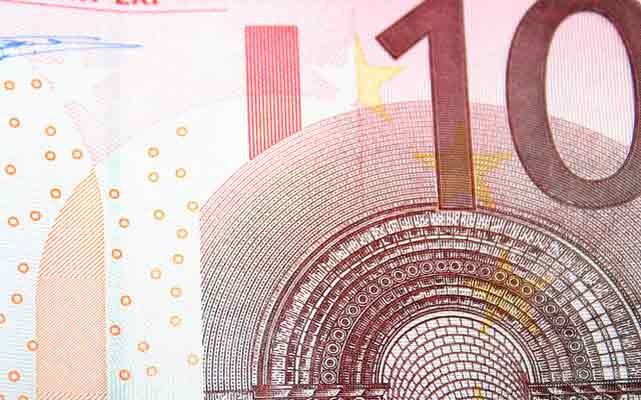Pound-to-Euro Slips as UK Inflation Cools
- Written by
David Woodsmith

The Pound to Euro exchange rate (GBP/EUR) edged lower on Wednesday, following the release of the UK’s latest consumer price index.
At the time of writing, the GBP/EUR exchange rate was trading at around €1.1393, leaving the pairing only slightly down from the start of the session.
The Pound (GBP) came under mild pressure on Wednesday after the UK’s latest consumer price index confirmed that inflation cooled in October for the first time since May.
According to the Office for National Statistics (ONS), headline inflation eased from 3.8% to 3.6%, while core inflation slipped from 3.5% to 3.4%.
Both readings aligned with market expectations.
The slowdown was largely driven by softer energy price growth compared with the same period last year.
The cooling print reinforced expectations of another Bank of England (BoE) interest rate cut in December, with analysts increasingly confident that the balance will tip in favour of the doves next month.
Even so, Sterling’s losses remained modest. The drop in inflation also drove down UK gilt yields, relieving some of the pressure on Chancellor Rachel Reeves ahead of next week’s highly anticipated budget.
The Euro (EUR) found modest support on Wednesday as a deepening selloff in global equity markets bolstered demand for safer assets.
This gave the single currency some upward momentum in an otherwise data-light session for Eurozone-focused traders.
The bloc’s own finalised inflation figures for October were confirmed at 2.1% as expected, having no material impact on European Central Bank (ECB) rate expectations and offering little reason for EUR investors to shift their positions.
Looking to the second half of the week, the Pound Euro exchange rate may be steered by the release of the UK’s and Eurozone’s latest PMI surveys.
Preliminary figures from the Eurozone are expected to show another improvement in private sector activity in November, which could help the Euro to end the session on a positive note.
By contrast, UK PMIs are forecast to point to a further moderation in economic activity, with uncertainty surrounding the autumn budget likely contributing to weaker business sentiment.
Such a divergence could leave the Pound exposed to additional downside.
STORY LINK Pound-to-Euro Slips as UK Inflation Cools

The Pound to Euro exchange rate (GBP/EUR) edged lower on Wednesday, following the release of the UK’s latest consumer price index.
At the time of writing, the GBP/EUR exchange rate was trading at around €1.1393, leaving the pairing only slightly down from the start of the session.
The Pound (GBP) came under mild pressure on Wednesday after the UK’s latest consumer price index confirmed that inflation cooled in October for the first time since May.
According to the Office for National Statistics (ONS), headline inflation eased from 3.8% to 3.6%, while core inflation slipped from 3.5% to 3.4%.
Both readings aligned with market expectations.
The slowdown was largely driven by softer energy price growth compared with the same period last year.
The cooling print reinforced expectations of another Bank of England (BoE) interest rate cut in December, with analysts increasingly confident that the balance will tip in favour of the doves next month.
Save on Your GBP/EUR Transfer
Get better rates and lower fees on your next international money transfer. Compare TorFX with top UK banks in seconds and see how much you could save.
The Euro (EUR) found modest support on Wednesday as a deepening selloff in global equity markets bolstered demand for safer assets.
This gave the single currency some upward momentum in an otherwise data-light session for Eurozone-focused traders.
The bloc’s own finalised inflation figures for October were confirmed at 2.1% as expected, having no material impact on European Central Bank (ECB) rate expectations and offering little reason for EUR investors to shift their positions.
GBP/EUR Forecast: Upbeat Eurozone PMIs to Lift the Euro?
Looking to the second half of the week, the Pound Euro exchange rate may be steered by the release of the UK’s and Eurozone’s latest PMI surveys.
Preliminary figures from the Eurozone are expected to show another improvement in private sector activity in November, which could help the Euro to end the session on a positive note.
By contrast, UK PMIs are forecast to point to a further moderation in economic activity, with uncertainty surrounding the autumn budget likely contributing to weaker business sentiment.
Such a divergence could leave the Pound exposed to additional downside.
International Money Transfer? Ask our resident FX expert a money transfer question or try John's new, free, no-obligation personal service! ,where he helps every step of the way, ensuring you get the best exchange rates on your currency requirements.
TAGS: Pound Euro Forecasts
Comments are currrently disabled
Related Stories:
- British Pound-to-Euro Forecast: GBP Steady on Iran, Energy Prices - January 14, 2026
- Pound to Euro Holds Near €1.15 - January 13, 2026
- British Pound to Euro Forecast: GBP Holds Ground Against EUR Amid Global Uncertainty - January 13, 2026
- Pound to Euro Holds Near €1.15 as Dollar Slumps - January 12, 2026
- Pound-to-Euro Week Ahead Forecast: UK Growth Critical for GBP/EUR in 2026 - January 12, 2026
- Pound-to-Euro Forecast: GBP Treads Water as UK Growth Outlook in Focus - January 9, 2026
- Pound-to-Euro Drifts toward €1.15 - January 9, 2026
- British Pound to Euro Forecast: GBP Drifts Lower After Strong New-Year Rally - January 8, 2026
- Pound Euro Steady Despite Cooling Inflation - January 8, 2026
Latest News:
- British Pound-to-Euro Forecast: GBP Steady on Iran, Energy Prices - January 14, 2026
- Pound Sterling to Dollar Forecast: GBP Stalls Below 1.35 as USD Holds Firm - January 14, 2026
- GBP/USD Forecast: Pound Sterling Firm as CPI Leaves Fed Bets Intact - January 13, 2026
- Pound to Euro Holds Near €1.15 - January 13, 2026
- British Pound to Euro Forecast: GBP Holds Ground Against EUR Amid Global Uncertainty - January 13, 2026
- Pound-to-Dollar Forecast: Powell Legal Row Undermines USD Support - January 13, 2026
- Pound to Euro Holds Near €1.15 as Dollar Slumps - January 12, 2026
- Pound Sterling to Dollar Forecast: GBP Rebounds above $1.34 on USD Shock - January 12, 2026
- Pound to Dollar Week Ahead Forecast: GBP/USD Vulnerable - January 12, 2026
- Euro-to-Dollar Forecast: EUR/USD Pressured as Markets Reassess Fed Cuts - January 12, 2026









